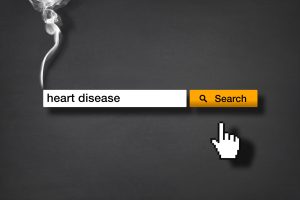 Migraine is a neurological condition that can cause a wide variety of symptoms. Migraines are well-known for their ability to cause a severe, throbbing headache, but they also often cause nausea, light sensitivity, neck stiffness, and difficulty concentrating, among other symptoms.
Migraine is a neurological condition that can cause a wide variety of symptoms. Migraines are well-known for their ability to cause a severe, throbbing headache, but they also often cause nausea, light sensitivity, neck stiffness, and difficulty concentrating, among other symptoms.
Migraines affect approximately 12% of people throughout the United States, many of whom are adults; however, approximately 10% of children also experience migraine headaches. Migraines do not necessarily occur the same way for children as they do for adults. To name a few of the differences, adult migraines are more likely to:
- Affect one side of the head
- Last for up to several days
- Lead to irritability or depression
- Begin with aura (visual disturbances, speech difficulties, and/or numbness) before the actual headache
On the other hand, when a child experiences migraines, they are more likely to affect both sides of the head. This often lasts for a shorter period of time than an adult migraine. They also rarely begin with aura or lead to behavioral symptoms such as irritability or depression.
One of the primary risk factors for migraines in children is genetics; if one or both parents have experienced migraines, there is a high likelihood (up to 75%) that a child will also experience them. It’s also more likely to affect girls than boys; attacks often start to occur after a girl’s first period. Other contributing factors include:
- Stress
- Skipping meals
- Too much or too little sleep
- Changes in weather
- Hormonal changes
- Concussions or traumatic brain injuries
- Certain foods
There is no specific test to diagnose migraines in children. However, a doctor may be able to determine whether this could be the cause of a child’s head pain by getting more information about:
- The child’s specific symptoms
- How those symptoms have responded to treatment so far
- How the child’s symptoms are affecting their ability to function in school or other daily activities
- Whether migraine or other conditions that cause head pain run in the child’s family
If you believe your child may be experiencing migraines, you can get them the expert care they need at Flushing Hospital Medical Center’s Pediatric Ambulatory Care Center. To schedule an appointment, please call (718) 670-3007.
All content of this newsletter is intended for general information purposes only and is not intended or implied to be a substitute for professional medical advice, diagnosis or treatment. Please consult a medical professional before adopting any of the suggestions on this page. You must never disregard professional medical advice or delay seeking medical treatment based upon any content of this newsletter. PROMPTLY CONSULT YOUR PHYSICIAN OR CALL 911 IF YOU BELIEVE YOU HAVE A MEDICAL EMERGENCY.










